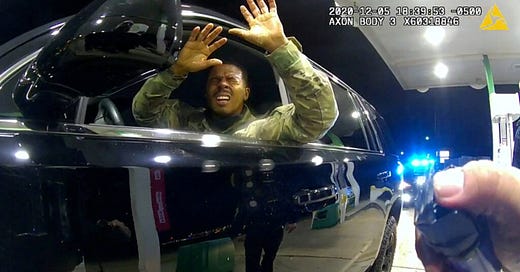The Russian Roulette of Blackness
Click or Bang. Black people never know how their encounter with the police will end.
I saw a movie once called The Deer Hunter. Robert De Niro and Christopher Walken starred as childhood friends who end up as prisoners of war during the Vietnam War. Russian roulette was one of the forms of torture used by their captors.
In the film, the Viet Cong forced their prisoners to play the gam…
Keep reading with a 7-day free trial
Subscribe to The Journeyman. to keep reading this post and get 7 days of free access to the full post archives.




